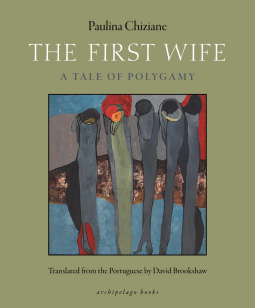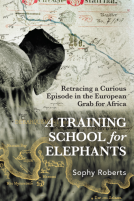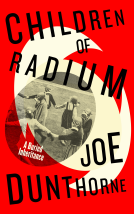
The First Wife
A Tale of Polygamy
by Paulina Chiziane
This title was previously available on NetGalley and is now archived.
Send NetGalley books directly to your Kindle or Kindle app
1
To read on a Kindle or Kindle app, please add kindle@netgalley.com as an approved email address to receive files in your Amazon account. Click here for step-by-step instructions.
2
Also find your Kindle email address within your Amazon account, and enter it here.
Pub Date Aug 09 2016 | Archive Date May 23 2016
Archipelago Books | Archipelago
Description
Advance Praise
"... the narrator expreses the suffering of all women, divided between the desire to live and what appears to be an inner death (...) condemned to lose all her battles and to drift in the shadows." -- Geneviève Vilner, Plural-Pluriel
"... the theme also allows her to lead the reader to discover a country and its customs, and to create some magnificent depictions of women." -- Olivia Marsaud, Afrik.com
"What we have, in Paulina, is the most authentic representation of the problems faced by women in Mozambican society." --Teresa Noronha, Jornal de Notícias
Available Editions
| EDITION | Other Format |
| ISBN | 9780914671480 |
| PRICE | $18.00 (USD) |
Average rating from 19 members
Featured Reviews
 Shoshi I, Reviewer
Shoshi I, Reviewer
I don't know much about Mozambique, but a recent fact has really stuck in my mind. Paulina Chiziane (born 1955) is the country's first published female novelist. I'm going to write that out once more because it needs to be repeated. The first published female novelist in Mozambique is going to be sixty-one this year. I'm no longer amazed at never having a read a book from this country, but I have been reminded of how privileged I am in the wealth of female writers I have with which I have grown up. I always knew that the only thing stopping me from being an author was lack of inspiration or vocation, not cultural prohibition or educational barriers. As bloggers are covering the Stella and Bailey's prizes during the spring months, Archipelago's new translation of Chiziane's fourth book is a timely reminder of quite how hard publication is for women in other places in the world.
The original title of David Bradshaw's new translation is Niketche: Uma História de Poligamia. It certainly has a different ring to it than the English-language 'The First Wife' (which makes me think of the 1996 Diane Keaton film). Instead, the title draws from the gendered tension which explodes about half way through the book, when the group of wives, lead by the narrator, perform a seductive dance for their husband.
"It's one of our dances, a dance of the Makua," Mauá explains, "a dance of love that newly-initiated girls do in front of everyone, in order to proclaim: we are women. We are ripened like fruit. We are ready for life!"
Niketche. The dance of the sun and the moon, the dance of the wind and the rain, the dance of creation. A dance that moves and shakes, that heats you up. That makes the body standstill and the soul fly. The girls appear wearing loincloths and beads. The move their body with skill, welcoming the awakening of all springtimes. At the first beat of the drum, each one smiles, celebrating the mystery of life as expressed within the niketche. The old recall the love that has passed, the passion that was lived and lost. Unloved women encounter once again, within the space of the dance, the enchanted prince with whom they gallop away hand in hand on the moon's back. In the young, the urgency for love is awakened, for the niketche is pure sensuality,the queen of all sensuality. When the dance ends, one can hear the sighs of those who have seen it, as if they were stirring from a pleasant dream.
As the passage above shows, this book is often a celebration of femininity and sexuality. On the other hand, it is also a 'history of polygamy,' a relationship pattern which does not traditionally empower women. The blurb of this book suggests a humorous take on relationships and an ironic turn-the-tables story about a group of 'wives' who take on their chronically unfaithful 'husband.' It does contain this, and his response to the Niketche is as unexpected as it is psychologically astute, but this is only half the story. Firstly, there is a lot of exploration of the female point of view, showing the shame and bitter struggle that undercuts the empowering story of solidarity and success. Secondly, the humour and polygamy only really kicks in about half way through the novel. Until then, it is a portrait of rejection and confusion; a moving, but not a funny take on human relationships.
Despite trying to read widely in translation, it's rare for me to encounter a book that delivers such a culture shock. Chiziane is not writing for an English audience and I got the impression that her own written and aural tradition, with lists of metaphors and lots of short sentences, was very different from those with which I am familiar. For these reasons, I found this book challenging on a stylistic level, as well as for the determinedly complex take on gender relationships. On reflection though, I think my struggles were in themselves positive because there's no point in seeking out different literary voices if all you want to hear is the same thing. I highly recommend 'The First Wife' to other readers, it will teach you about new world and new ways of writing. It certainly made me more aware of my own privileged position as I embark on the 2016 Bailey's shortlist and prepare to write my opinions online for all to read. My final views on the book are that I hope more of Chiziane ground-breaking fiction will be available to English language readers soon, and I really hope that my number one fact about Mozambique will soon be superseded by a richer, and more egalitarian, statistic about its publishing scene.
 Robin Y, Reviewer
Robin Y, Reviewer
"In love, all men are betrayers."
A raw and intimate look at polygamy, written by Mozambique's first published woman (a fact that still has me blinking in disbelief).
What a unique reading experience this was. I definitely felt culture shock, and soon realized this book was not written for a Western audience. The culture shock was in response to both content and style, which made for both an interesting and challenging read. It is amazing that this was written and set in current day and not hundreds of years ago. The place of women in this part of Africa is still subservient and dismissed. She accepts any treatment from her husband, what is she without him? It is her fault if he strays, she didn't work hard enough to keep and entice him. She seemingly has no control over her life.
The story, which revolves around Rami and her experience of discovering her husband had secretly been keeping 4 other wives and a swarm of children, is fascinating, and shows that slowly, the scales are tipping. What I found difficult is that this book has a LOT of exposition, like a speech. Some action happens in the story, then Rami reflects. Polygamy is this, polygamy is that... and lots of rhetorical questions. I found myself wishing she would say all this through the story rather than using a lecturing style. I found myself wanting to skim past some of these parts because there was a lot of repetition of ideas. However, imposing my Western expectations on every book I read is pretty limiting, and unfair.
This is a brave and brutally honest telling. Was it easy to read? Not necessarily. But definitely worth reading.
This book was given to me by Netgalley in exchange for an honest review. Thank you Archepelago Books!
This was a very strange book for me to read. First and foremost because I knew it had been originally written in Portuguese and I was reading a translated English version, I kept wondering how the sentences and words would sound in their initial version, so it was difficult for me to disconnect from that. Especially when expressions like little by little the hen fills it's belly (grão a grão enche a galinha o papo) appeared, that is such a Portuguese phrase.
But most of all, I felt so angry throughout the book. At some points I had to close it to be able to breathe again. This made me realize something that I am aware on the back of my mind but it is not present on my daily life. In most of the world women fight a daily battle just to have a dignified existence. And the biggest battle they fight is with each other. We are the first ones to hinder our own progress by adhering to old mentalities, by perpetuating traditions, by educating our daughters differently than we educate our sons. And we are our most aggressive judges. We have a long way to go still towards equality, in being different but with the same rights.
This book was beautifully written. I lost count to the amount of highlights I saved on my kindle to reread later, sentences to keep with me. The language and imagery is very rich and involving. Through one woman’s plight we get to know part of Mozambique’s history, differences between north and south, legacy from colonial times, the struggle between old traditions and the will to be a modern country.
It was my first book by this author, but now I want to get to know more books, preferably in Portuguese.
Recommended to anyone who likes good literature, written with imagination.
Women should be better friends with each other, show more solidarity. We are the majority, we’ve got strength on our side. If we join hands, we can transform the world.
https://peixinhodepratablog.wordpress.com/2016/04/27/historias-de-poligamia/
 Jenny C, Librarian
Jenny C, Librarian
In my year-long project of trying to finish reading a book from every country, I took the time to revisit Mozambique. I could not resist after a few friends rated this one so highly, and even moreso when I discovered that this is the FIRST female author to be published from Mozambique. Most of the time you see Mia Couto, who often has women as background only.
What a mistake not to feature the women, as Chiziane demonstrates! Rami, the titled First Wife, thought she was the ONLY wife of her husband Tony. She discovers a host of women he has been involved with, has had children with, and soon understands why he is frequently gone or too tired to be with her. Shenanigans follow, which really are a lot of fun.
But the point of the novel is much deeper than that. Chiziane shows women treating each other with physical violence and social isolation. She outlines how the family of the husband has the upper hand, backing up expectations that the woman serves the man ON HER KNEES and only eating his scraps. She demonstrates the cultural stereotypes of women from "the North" vs. "the South," much of it having to do with sexual education and different definitions of beauty. I laughed at how Chiziane referred to sex and sexual organs until I realized it was reflective of how the women in the culture are able to talk of them. There is the stomach, the brain, and you know, that other thing, maybe the most important thing.
Underlying all of this - the story and the well-crafted interplay of these social truths about Mozambique - is a severe critique of women being treated as property. It isn't polygamy itself that is the villain in this story, but a society that allows for one-sided polygamy as a result of the women-as-property assumption.
The style of writing in the novel feels like an oral tradition. There are repeated phrases, metaphors, similes - often in patterns. I could hear it in my mind the way a mother might pass on the words to her daughter, to prepare her, to warn her. Rami experiences this from her mother, sometimes too late.
I am so excited about the new line of translated novels Archipelago Press is bringing into the world. I was happy to read this one. HOWEVER it really feels most like a call to solidarity, to action, to power for the women in Mozambique. Chiziane eloquently describes the strength of the women in her community. "I think all women should unite with each other against the tyranny of men."
 Mary M, Reviewer
Mary M, Reviewer
As I contemplated changing my college major (again) to anthropology I read a lot of ethnographies. The First Wife by Paulina Chiziane is a lot like ethnography as it examines the roles of men and women in Mozambique.
However, the First Wife is not Chiziane’s own story but that of Rami, whose marriage is faltering. Her husband, Tony, is running around with other women “stuffing them full of children”. Despite being a Catholic and Christian country, traditional customs still prevail and an informal system of polygamy is still practiced. As she sets out to confront her rivals and rescue her marriage, she becomes aware that her problems and those of Tony’s mistresses are due to the second-class status assigned to women in Mozambique.
The voice in the book is so unique as she manages to balance humor and deep pathos as we follow Rami on her quest for justice so she and other women can be treated equally as human beings. I am so glad I found this book and I will be thinking about it for a long time.
 Rebecca B, Reviewer
Rebecca B, Reviewer
A challenging but nonetheless rewarding read. The First Wife tackles head on the Mozambican tradition of polygamy, exploring its pains as well as rare pleasures through the eyes of Rami as she tries to keep track of her slippery husband Tony. In the process she builds a rambunctious family of wives who give as good as they get, and through whom Rami discovers her own strength. Chiziane fights misogyny in the best way, pointing out its ridiculousness until it reaches the point of farce - although the true sadness is never far from the surface.
 Kel M, Media/Journalist
Kel M, Media/Journalist
In solidarity, power
The First Wife: A Tale of Polygamy by Paulina Chiziane, translated by David Brookshaw (Archipelago Books, $18).
Archipelago Books, a treasured source of international literature in excellent English translations, brings us Paulina Chiziane’s feminist tale of just desserts.
Rami’s been married to her husband, Tony, for twenty years when she finds out she’s been lied to—and she’s not alone. Thus begins The First Wife: A Tale of Polygamy, translated from the Portuguese by David Brookshaw.
Far from being crushed by this betrayal, Rami insists that Tony marry the other women legally, which is allowed in Mozambique. Then the women, once isolated, are able—with Rami at the forefront—to create a community that not only provides some protection from a culture that is abusive to women, but also allows them to grow individually.
Chiziane, the first woman to publish a novel in Mozambique, definitely has an agenda here, but Rami and her sister-wives are so well developed that the political implications of their newfound sisterhood are no bitter pill.
 Mandy J, Reviewer
Mandy J, Reviewer
This is quite a remarkable book, passionate, lyrical, intense and deeply illuminating about Mozambican society and the position of women within it. The very intensity of the prose makes it quite a challenging read, especially as it is also repetitious and unrelenting, but any criticisms I might have of it as a novel are outweighed by its intrinsic worth as a work from an African writer opening up her country to a wider international readership. The plot, such as it is, is essentially a simple one. Rami discovers that her much-loved husband Tony is unfaithful to her. Her approach to this universal situation is a particular one – she forces him to marry his other women. How she gets his other lovers to go along with her, and the reasons she proffers for polygamy, make for some fascinating and thought-provoking reading. Polygamy, post-colonial society, prejudice within Mozambican society, the position of women, tradition versus modernity, sexual practices within the society and the legacy of Christianity – all these are explored as the novel progresses. Paulina Chiziane is the first woman from Mozambique to be published (an interesting fact in itself) and is considered one of the country's most important writers. Little known in the West, this novel will no doubt bring her to a much wider readership, certainly something she deserves, and if at times this particular novel is heavy going, it’s worth sticking with for the insight into Mozambique that it gives.


















